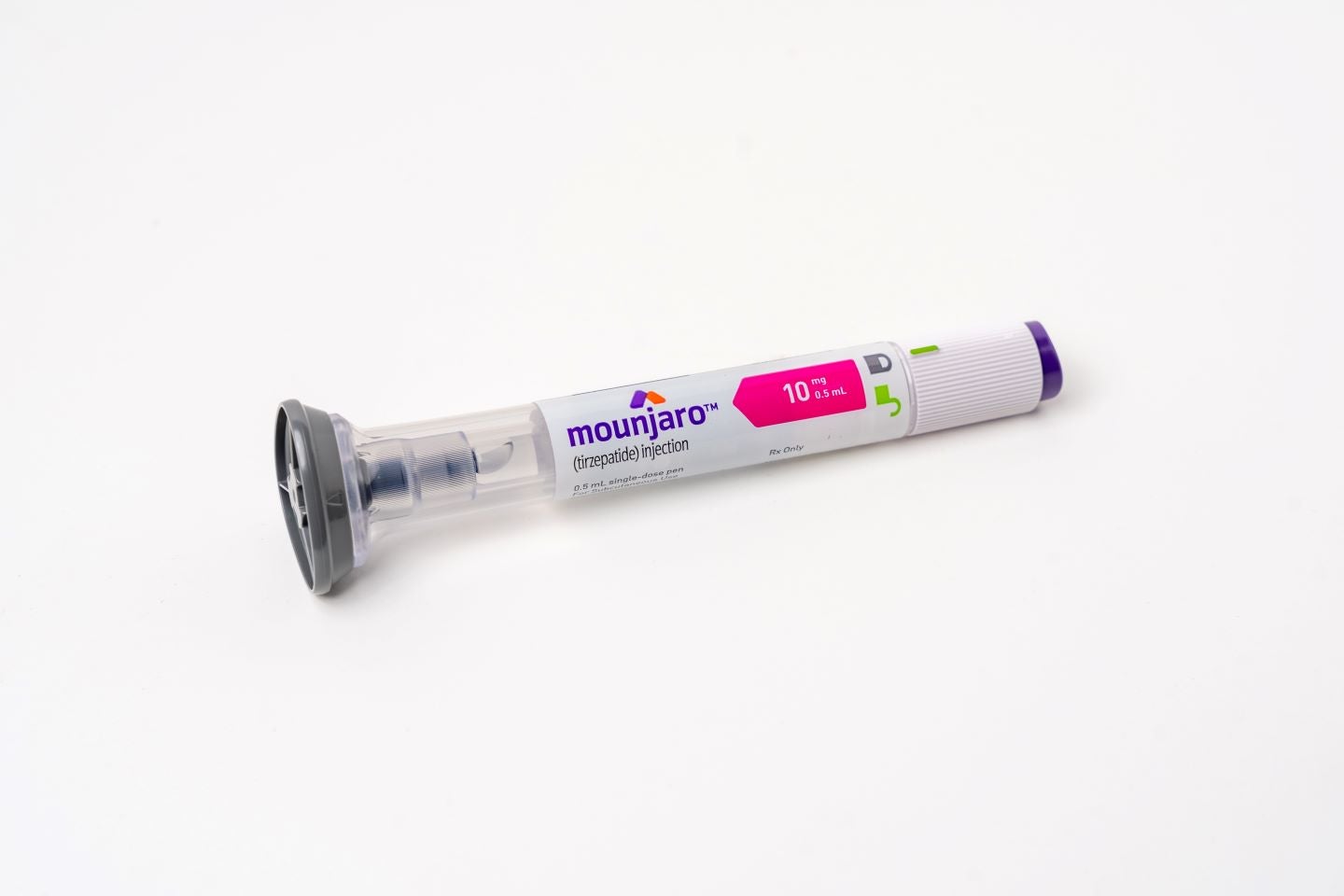This morning at the European Society of Cardiology (ESC) Congress 2024, Eli Lilly and Co announced the most recent trial results for retatrutide related to cardiovascular risk factors. Eli Lilly’s retatrutide, a triple GLP-1/GIP/glucagon receptor agonist, will be the next generation of GLP-1R agonism. According to GlobalData, this candidate has the potential to become the next drug to revolutionise the obesity space.
Eli Lilly’s Mounjaro/Zepbound (tirzepatide) has achieved incredible success since it reached the type 2 diabetes (T2D) and obesity markets and its clinical trial results show superior efficacy compared to semaglutide in reducing HbA1C levels and body weight. Retatrutide, currently in Phase III clinical trials for obesity, T2D, and other conditions, introduces a new mechanism of action in addition to tirzepatide’s: glucagon receptor agonism. This means it is expected to target energy consumption, as well as the other effects mediated by the GLP-1 and the GIP receptors.
Results from the Phase II clinical trial (NCT04881760) featured retatrutide’s effects on serum lipid profiles, analysing changes in apolipoprotein levels and lipoprotein particles. In the trial, 338 patients with obesity or overweight, without diabetes, were included.
According to Eli Lilly’s results presentation at ESC 2024, retatrutide reduced non-HDL-C by up to 22.2% at 24 weeks and by up to 26.9% at 48 weeks, in a dose-dependent manner; apoB was reduced by up to 19.6% and 24.2% at 24 and 48 weeks, respectively. At 48 weeks, the drug reduced triglycerides and apoC-III levels by up to 40.6% and 38.0%, respectively, and it also reduced the total number of TG-rich lipoprotein particles (TRLP) regardless of their size. Reduction in large and medium TRLP was greater than in small TRLP, therefore the average size of TRLP was smaller following treatment with the drug. Retatrutide also reduced the number of total and highly atherogenic small LDL particles (LDLP), while total and small HDL particles (HDLP) were only slightly reduced. The average size of HDLP increased following treatment with the drug. At 48 weeks, the NMR-derived lipoprotein insulin resistance score was decreased by 27.4%, 31.7%, and 32.5% with the 4mg, 8mg, and 12mg dosages, respectively, following treatment.
Key opinion leaders (KOLs) interviewed by GlobalData expressed their enthusiasm for this drug, saying that “it could be the next step, and the natural replacement for tirzepatide in the long term”.
According to GlobalData’s report on ‘Glucagon-Like Peptide-1 Receptor Agonists in Type 2 Diabetes and Obesity: Seven-Market Drug Forecast and Market Analysis‘, if retatrutide reaches the market in the next few years, it could gain a significant portion of the market by 2033, reaching over $9bn in sales for T2D and obesity.

US Tariffs are shifting - will you react or anticipate?
Don’t let policy changes catch you off guard. Stay proactive with real-time data and expert analysis.
By GlobalDataIn conclusion, retatrutide seems to improve the cardiovascular risk profile and lipid profile of patients in a dose-dependent manner. This drug has the potential to one day become a blockbuster in multiple indications. Eli Lilly is developing this drug in multiple therapeutic areas, but it wouldn’t be surprising if the company decides to seek approval for cardiovascular risk factors as well, on account of these latest results.






